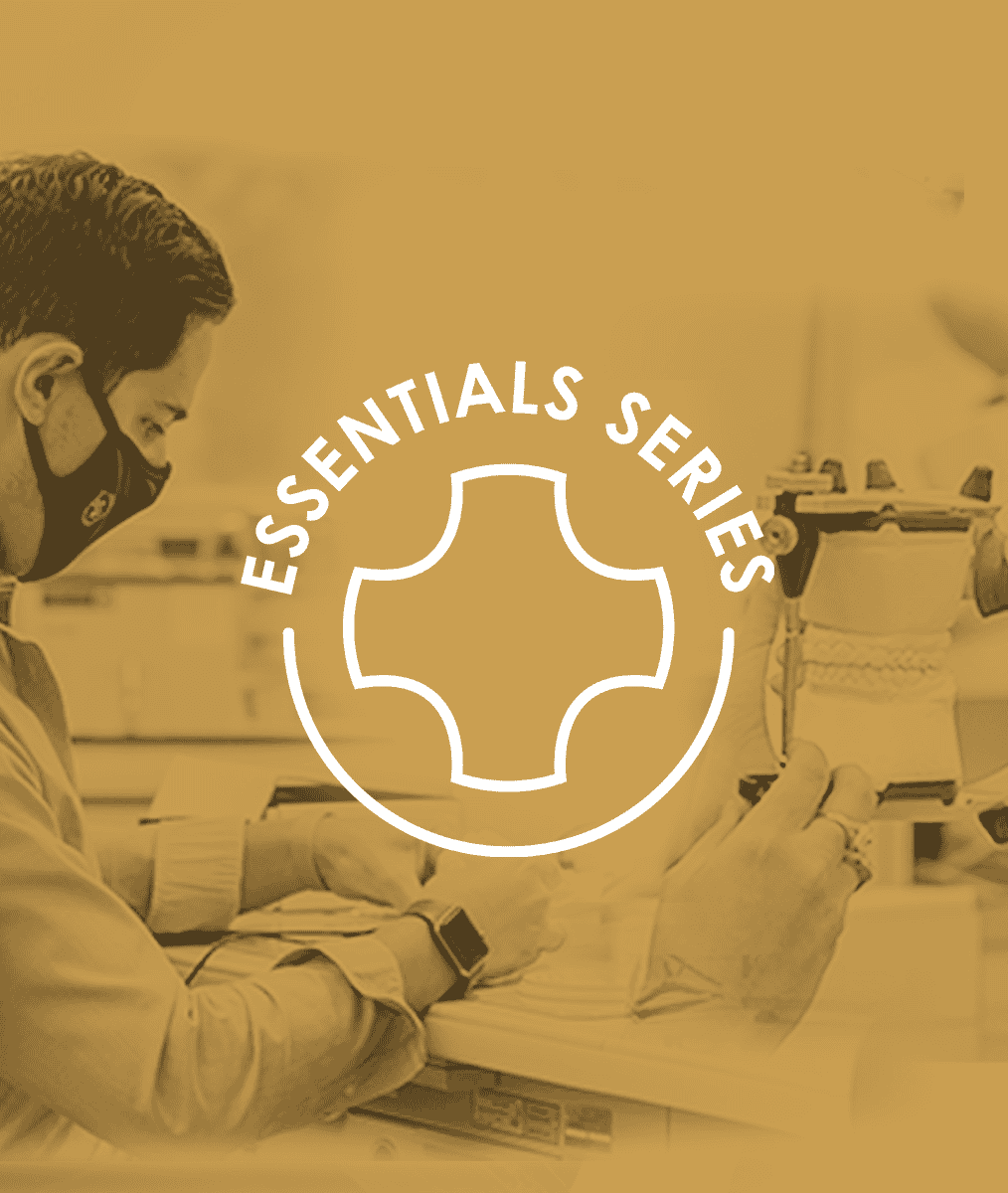
Finding Your Philosophy
After about ten years in practice, I had “one of those days” when I sat down at the end of the day and said to myself, “Is this what it’s going to be like for the next thirty years?” I was working hard, making money, and considered successful by my friends and peers. But, patients were not saying yes to the dentistry I was capable of delivering.
I had a long talk one evening with Dr. Loren Miller while at The Pankey Institute. His parting comment stuck with me, “Son, it’s time for you to do some straight-line thinking.” I then realized that I needed to change if I wanted my patients to change. I needed to practice in a manner that allowed me to be happy and serve my patients well. In order to do that, I needed to define what I wanted out of my life – personally and professionally – and start living that life.
Starting Point
Each of us will find our core philosophy in our own way, but you don’t have to reinvent the wheel to get there. There are many resources to help you get started. What follows is a list of ideas from Jim Rohn that I like as a starting point.
- Set some key goals for life – personally and professionally. Then be like a sailor. No matter where the wind is blowing from, keep tacking toward the goals.
- Learn from both success and failure. Don’t take everything personally. Analyze when things go right and wrong, and learn from your mistakes. Success is a series of small steps toward your goals.
- Read. Reading requires concentration and focus. These are skills we need to find success. Reading allows you to learn from the experience of others. The brain functions differently when you are reading and writing than when you watch a YouTube video.
- Keep a journal or write a blog. Keep track of your path to clarifying your philosophy. You don’t really have a personal philosophy until you are able to explain it to your team and others.
- Practice the art of active listening. It is a learned skill that is valuable in your practice and your family. Surround yourself with people you admire. Observe and listen to them.
- Be disciplined. Every day is filled with a myriad of choices. We know the difference between good and bad options. It takes discipline to make good choices and stick to that path.
- Don’t neglect your personal and practice life. If you don’t take care of yourself, your relationships and your business no one else is going to do it for you.
This all sounds similar to what L.D. Pankey wrote and said, doesn’t it?
Moving to Fee for Service Care
I had many mentors on my path to change: Avrom King, Sandy Roth and The Pankey Institute. It was neither quick nor easy, but these sources came together for me to help me have the courage to commit to change. That change was not driven by money. It was driven by the desire to help people willing to commit to seeking outcomes they desired that were within my capacity to facilitate. That may seem “fluffy,” but from a client perspective, it is a really big deal. We asked our clients to take ownership of their own health. If that was not within their capacity, we chose not to be involved in their care. Our philosophy evolved over several years and allowed me to move from insurance dependence to fee for service care. We called our practice an “outcomes-based” practice, thirty years later, and three years out from handing off my practice to my former partner, it is still a successful fee for service practice.
Moving from insurance dependence or mixed dependence to a completely fee for service care takes commitment to a special kind of practice philosophy. The listed seven steps above can start you on the way to clarifying your own.
Related Course
E4: Posterior Reconstruction and Completing the Comprehensive Treatment Sequence
DATE: February 26 2026 @ 8:00 am - March 2 2026 @ 2:30 pmLocation: The Pankey Institute
CE HOURS: 44
Dentist Tuition: $ 7500
Single Occupancy with Ensuite Private Bath (per night): $ 355
The purpose of this course is to help you develop mastery with complex cases involving advanced restorative procedures, precise sequencing and interdisciplinary coordination. Building on the learning in Essentials Three…
Learn More>






